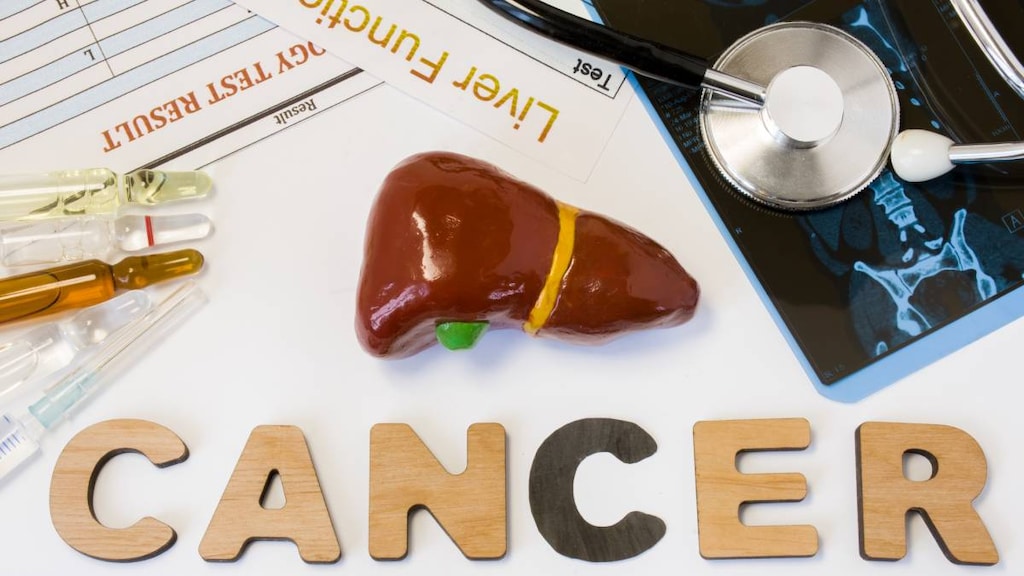Liver Cancer Treatment Options by Stage

For those facing a diagnosis of liver cancer, the road can be challenging. Mortality rates for liver cancer are high, and it can be difficult to keep a positive attitude in the face of this diagnosis.
Nevertheless, there is always hope, and success rates for curing cancer are improving all the time. There is also a wide range of treatment options available for liver cancer that vary based on how advanced the stage of the cancer is.
Treatment options
Liver transplant
If liver cancer is detected very early on in stage 1, then a liver transplant may be a possible treatment, according to the Mayo Clinic. This procedure involves the surgical removal of person's liver and its replacement with a healthy liver from a donor.
The drawbacks to a liver transplant are that it’s only viable for a small number of patients, and it can be difficult to find a donor liver. For people who successfully receive a liver transplant, however, the outcomes are quite favorable compared with other liver cancer treatments. The American Cancer Society says that the five-year survival rate after a liver transplant is 60 to 70 percent.
Tumor removal
Another potential stage 1 liver cancer treatment is surgery to remove the tumor — a procedure that's also known as a partial hepatectomy. This treatment is viable very early in the development of liver cancer. The liver also needs to be healthy other than the part affected by the tumor. A fairly small group of people meet these criteria.
Overall, the chance of surviving five years when liver cancer is contained within the liver is about 31 percent. The American Cancer Society notes that the chances of survival improve if the tumor is small or if it has not spread into the blood vessels of the liver or the lymph nodes alongside the liver.
Cryoablation
This type of treatment is reserved for liver cancer that remains in the liver (localized) but is too large or challenging to remove surgically, according to the Mayo Clinic. This may include stage 2 or stage 3 liver cancers. Cryoablation is one method that may be used to kill such cancers. It involves freezing cancer cells using liquid nitrogen delivered directly to the cancer tumor. Ultrasound is used for guidance as the procedure is being performed.
Radiofrequency ablation
An alternative to cryoablation is radiofrequency ablation. With this liver cancer treatment method, electrical current is used to heat the cancer cells and kill them that way. Just as with cryoablation, ultrasound is typically used to locate the needles that deliver the heat to the cancer tumor. Microwaves or lasers can also be used to heat and kill cancer cells as an alternative to electrical currents.
Chemotherapy
Chemotherapy can be used to treat liver cancer in several different ways. For localized liver cancer, where the tumor remains in the liver (stages 1, 2 or 3), a procedure known as chemoembolization can be used to deliver the cancer-killing medication directly to the tumor. If liver cancer becomes advanced and spreads to other areas of the body (stage 4), a variety of different chemotherapy drugs may be tried. However, the odds of success decline as liver cancer becomes more advanced, the American Cancer Society notes. Five-year survival rates range from 31 percent for localized liver cancer to 2 percent for distant liver cancer.
Alcohol injections
Alcohol injections are a method on par with cryoablation or radiofrequency ablation for localized liver cancer. The pure alcohol injection will kill off the tumor cells, just like heating or freezing does, the Mayo Clinic says. It may be tried if other methods of destroying the cancer cells in the liver have failed.
Immunotherapy
If liver cancer has progressed from localized to more advanced stages, such as stage 4A or 4B, then immunotherapy may be a possible treatment. As the name suggests, immunotherapy involves using the body’s own immune system to fight the cancer. In the case of liver cancer, the drugs pembrolizumab (Keytruda) or nivolumab (Opdivo) may be effective, the American Cancer Society says.
At its most basic, immunotherapy may block the action that prevents the body’s immune system from attacking cancer cells. As a result, the immune system itself may be able to fight cancer more effectively. Though immunotherapy can help, the reality with advanced stages of liver cancer is that five-year survival rates tend to range between 11 and 2 percent.
Radiation
Radiation therapy can treat liver cancer in a few different ways. For localized liver cancer (stages 1, 2 and 3), tiny beads with radiation can be implanted in the tumor to help shrink it, according to the Mayo Clinic. Radiation is also often used to control the symptoms of stage 4 liver cancer when other treatments haven’t helped. These therapies involve lying on a table while radiation beams are directed into the body. While the treatments may help with the symptoms of liver cancer, they do not drastically improve the overall mortality rate of liver cancer.
Targeted drug therapy
Like immunotherapy and radiation, targeted therapy is primarily used for treating advanced stages of liver cancer. Targeted therapies are advanced medications that are designed to focus on abnormalities found within cancer cells and block them from occurring. This, in turn, causes the cancer cells to die off.
Like chemotherapy, targeted medications can reach all areas of the body via the bloodstream. This makes them viable for treating stage 4 cancers that have spread beyond the liver, the American Cancer Society notes. Some of the targeted therapies that can be helpful for liver cancer include tyrosine kinase inhibitors such as lenvatinib (Lenvima), cabozantinib (Cabometyx), sorafenib (Nexavar) and regorafenib (Stivarga). However, the death rate from liver cancer after five years still remains quite high, even with targeted therapy treatment.
What if treatments don’t work?
The difficult reality is that many attempts to treat liver cancer fail. The best success rate is after a liver transplant, and even that’s only 60 to 70 percent.
When cancer treatment fails, the American Cancer Society recommends talking with family and friends and working closely with your cancer care team to determine the next course of action. It can be difficult to face the future in this situation, but many people are able to make peace with it and stay hopeful. There can still be some good times ahead with loved ones that can bring happiness and meaning to life before the end.
Supportive (palliative) care
Supportive, or palliative, care is also a key aspect of liver cancer treatment, the Mayo Clinic notes. This treatment is not focused on killing the cancer. Rather, it’s about supporting the patient — easing pain, minimizing side effects and improving quality of life while the person is fighting liver cancer. It’s also critical in managing the sometimes severe side effects of liver cancer medications.
The bottom line
The American Cancer Society also points out that survival rates for cancer treatments are improving all the time, so having liver cancer doesn’t mean giving up hope. There are still a number of viable treatments that can not only extend your life, but also improve the quality of it in the face of a liver cancer diagnosis.
Article references
- Key Statistics about Liver Cancer, American Cancer Society, 2019, https://www.cancer.org/cancer/liver-cancer/about/what-is-key-statistics.html
- Liver Cancer, Mayo Clinic, 2019, https://www.mayoclinic.org/diseases-conditions/liver-cancer/diagnosis-treatment/drc-20353664
- Treatment of Liver Cancer, by Stage, American Cancer Society, 2019, https://www.cancer.org/cancer/liver-cancer/treating/by-stage.html
- Targeted Therapy for Liver Cancer, American Cancer Society, 2019, https://www.cancer.org/cancer/liver-cancer/treating/targeted-therapy.html
- If Cancer Treatments Stop Working, American Cancer Society, 2019, https://www.cancer.org/treatment/treatments-and-side-effects/if-cancer-treatments-stop-working.html
- Liver Cancer Survival Rates, American Cancer Society, 2019, https://www.cancer.org/cancer/liver-cancer/detection-diagnosis-staging/survival-rates.html
- Liver Cancer Stages, American Cancer Society, 2019, https://www.cancer.org/cancer/liver-cancer/detection-diagnosis-staging/staging.html



